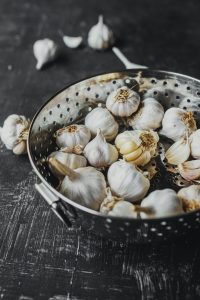UNDERSTAND AND BOOST YOUR IMMUNE SYSTEM
Let’s start by explaining what the immune system is to better understand what’s going on. The immune system is a complex organ system in the body comprised of white blood cells, skin, mucus and bacteria. Its central role is to seek, recruit, attack and destroy foreign invaders, such as bacteria and viruses that enter the body.
There are two main levels of immunity: the first is the innate immunity. This system provides a quick first line of defence and acts against a wide range of pathogens. The innate immunity system refers to nonspecific defence mechanisms that come into play immediately or within hours of an antigen’s appearance in the body. These mechanisms include physical barriers such as skin, chemicals in the blood, and immune system cells that attack foreign cells in the body. The chemical properties of the antigen activate the innate immune response.
The second is the adaptive immunity. This level refers to antigen-specific immune response. The adaptive immune response is more complicated than innate. The antigen first must be processed and recognized. Once an antigen is identified, the adaptive immune system creates an army of immune cells specifically designed to attack that antigen. Adaptive immunity also includes a “memory” that makes future responses against a specific antigen more efficient.
The main keywords here are:
Antigen – Anything that causes an immune response is called an antigen. An antigen may be harmless, such as grass pollen, or harmful, such as the flu virus.
Pathogen – Disease-causing antigens are called pathogens. The immune system is designed to protect the body from pathogens.
 How to support the immune system?
How to support the immune system?
The immune system is precisely that — a system, not a single entity. For it to function well, it requires balance and harmony. Researchers are still exploring the effects of diet, exercise, age, psychological stress, and other factors on the immune response.
In general, a healthy lifestyle is the single best step you can take toward naturally keeping your immune system strong and healthy. Every system in your body, including the immune system, functions better when following balanced and healthy strategies such as these:
- Eating a whole food diet with plenty of fruit and veg
- Exercising regularly
- Staying hydrated
- Maintaining a healthy weight
- Getting enough sleep
- Reducing stress
- Drinking alcohol in moderation
- Not smoking
Diet and the immune system
There is some evidence that various micronutrient deficiencies (think vitamins and minerals) could alter immune responses. However, the impact of these immune system changes on health is less clear, and the effects are yet to be assessed.
So, if you suspect you may have micronutrient deficiencies, make sure you eat a varied diet with ample amounts of fruit and vegetables or support yourself with a good quality multivitamin.
The most important nutrients that support the immune system are:
Vitamin D
Research shows that vitamin D supplementation may reduce the risk for viral infections, including respiratory tract infections, by reducing the production of pro-inflammatory compounds in the body.
The body produces vitamin D from cholesterol, provided there is an adequate amount of UV light from sun exposure. In UK, it is hard to maintain optimal levels, therefore is a good idea to speak to your doctor to check your levels.
For moderate supplementation, a 1,000-2,000IU dose of vitamin D3 is sufficient to meet the needs of most of the population. The safe upper limit in UK is 4,000IU/day.
Vitamins C and E:
Vitamins C and E are antioxidants that help to destroy free radicals and support the body’s natural immune response.
Vitamin C common sources are red bell peppers, oranges, strawberries, broccoli and lemons; while for vitamin E are almonds, spinach, avocado and olives.
Vitamin C is often supplemented to reduce the symptoms of the common cold. Supplementing vitamin C can reduce the duration of a cold by 8-14% in any population, when it is taken as a daily preventative measure, or at the beginning of a cold.
The Recommended Daily Intake (RDI) of vitamin C is 100-200mg. This is easily attained through the diet, so supplementation of such low doses is usually unnecessary. Higher doses of vitamin C, up to 2,000mg, are sometime used to support the immune system or reduce the duration of the common cold.
Maintaining adequate levels of vitamin E in the body can be achieved through very low daily doses of 15mg (22.4 IU) or less. This dose of vitamin E can be acquired through the diet, making supplementation unnecessary in many cases.

Beta-Carotene:
Beta-carotene is a powerful antioxidant that can reduce inflammation and boost immune function by increasing disease-fighting cells in the body.
Among common food sources we find sweet potatoes, carrots and green leafy vegetables (like kale and chard).
Zinc:
Zinc is a mineral that can help boost white blood cells, which defend against invaders. Some good sources of zinc are pumpkin seeds, sesame seeds, beans and lentils.
In case of supplementation, Zinc has two standard dosages. The low dosage is 5-10mg, while the high dosage is 25-45mg. The low dose works well as a daily preventative, while the high dosage should be taken by anyone at risk for a zinc deficiency.
Allicin:
Allicin is the principal bioactive compound present in the aqueous extract of garlic. When garlic is chopped or crushed, the alliinase enzyme is activated, and allicin is produced. When cooking with garlic, it is recommended to crush or chop it and leave for 10 mins for the enzyme to be activated.
The benefits of garlic to health have been proclaimed for centuries; however, only recently, it’s been proposed as a promising candidate for maintaining a healthy immune system.
The effective dose for raw garlic is a single segment of a garlic bulb (called a clove), eaten with meals two or three times a day.
Astragalus:
Astragalus membranaceus is an important herb in traditional Chinese medicine. It has been used in a wide variety of herbal blends and ‘natural’ remedies. This Chinese herb has been researched for its cardioprotective, anti-inflammatory, and longevity effects.
The main bioactive compound in Astragalus membranaceus is astragaloside IV, which can be supplemented by itself.
Conclusion
Food is a powerful ally in helping the body overcoming illness. The nutrients list is not exhaustive, but it provides you with a starting point toward a stringer immune system.
It is important to talk to your healthcare practitioner before taking any supplement, because it can interact with certain medications and health conditions. The safest option is to incorporate the mentioned nutrients in your daily diet, along the lifestyle suggestions, to contribute to overall health and disease prevention.
References
Arreola R, Quintero-Fabián S, López-Roa RI, Flores-Gutiérrez EO, Reyes-Grajeda JP, Carrera-Quintanar L, Ortuño-Sahagún D. Immunomodulation and anti-inflammatory effects of garlic compounds. J Immunol Res. 2015;2015:401630. doi: 10.1155/2015/401630. Epub 2015 Apr 19. PMID: 25961060; PMCID: PMC4417560.
Chew BP. Role of carotenoids in the immune response. J Dairy Sci. 1993 Sep;76(9):2804-11. doi: 10.3168/jds.S0022-0302(93)77619-5. PMID: 8227684.
Grant WB, Lahore H, McDonnell SL, et al. Vitamin D supplementation could prevent and treat influenza, coronavirus, and pneumonia Infections. Preprints. 2020;2020030235; Chung C, Silwal P, Kim I, Modlin RL, Jo EK. Vitamin D-cathelicidin axis: at the crossroads between protective immunity and pathological inflammation during infection. Immune Netw. 2020;20, pp.12-38.
Hewison M. Vitamin D and immune function: an overview. Proc Nutr Soc. 2012 Feb;71(1):50-61. doi: 10.1017/S0029665111001650. Epub 2011 Aug 18. PMID: 21849106.
Jin M, Zhao K, Huang Q, Shang P. Structural features and biological activities of the polysaccharides from Astragalus membranaceus. Int J Biol Macromol. 2014 Mar;64:257-66. doi: 10.1016/j.ijbiomac.2013.12.002. Epub 2013 Dec 8. PMID: 24325861.
Pecora F, Persico F, Argentiero A, Neglia C, Esposito S. The Role of Micronutrients in Support of the Immune Response against Viral Infections. Nutrients. 2020 Oct 20;12(10):3198. doi: 10.3390/nu12103198. PMID: 33092041; PMCID: PMC7589163.








